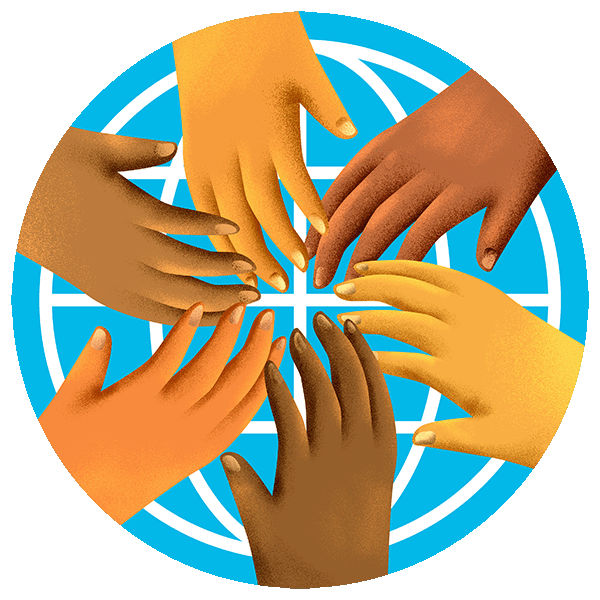
UNDRIP Article 01: Human Rights
Article 1 of the UN Declaration on the Rights of Indigenous Peoples states: Indigenous peoples have the right to the full enjoyment, as a collective or as individuals, of all human rights and fundamental freedoms as recognized in the Charter of the United Nations, the Universal Declaration of Human Rights and international human rights law.
PRODUCTION
Script by Shaldon Ferris (KhoiSan)
Voiceover by Leigh-Anne Willemse
MUSIC
“Dannyco” by The Hot Shots Dance Band
UNDRIP Article 02: No Discrimination
The UN Declaration on the Rights of Indigenous Peoples declares in
Article 2:
"Indigenous peoples and individuals are free and equal to all other
peoples and individuals and have the right to be free from any kind
of discrimination, in the exercise of their rights, in particular that
based on their indigenous origin or identity."
A Long Road Ahead for Indigenous Women on International Women's Day
March 8th is International Women's Day-- a time to celebrate the many accomplishments of women, as well as to discuss strategies to further their empowerment and to achieve gender equality. Shaldon Ferris (Khoisan) interviews Avexnim Cojti (Maya K’iche’) about the role of women in her community, and what needs to change in order for Indigenous women to finally occupy an equal position in society.
Radio Saves Lives - Celebrating the Value of Radio
Radio continues to be a crucial tool for strengthening communities worldwide. Celebrate this uniquely powerful and uniting form of communication on World Radio Day, February 13th.
According to the UNDRIP, Indigenous People have the right to establish their own media in their own languages, and to have access to to all forms of non-indigenous media without discrimination (Article 16). Radio plays an especially crucial role in Indigenous communication, due to its potential to cross borders and terrain, as well as economic and social barriers.
What Will a Trump Presidency Mean for U.S. Indigenous Communities?
Suzanne Benally is a leader in Indigenous Rights advocacy, and serves as the Executive Director of Cultural Survival. She shares her thoughts on the challenges and opportunities facing Native American communities and Indigenous Peoples in general in the context of the Trump administration. Interview by Shaldon Ferris (Khoisan), Indigenous Rights Radio producer based in South Africa.
Websites:
Indigenous Women Changemakers: Vicky Tauli-Corpuz
Vicky Tauli-Corpuz (Igorot Kankanaey, Philippines), a long-time activist and UN Special Rapporteur on the Rights of Indigenous Peoples, shares her experience with successes of small, local groups reaching out to the international community to collaborate in better defending their rights. She explains how her experience as a nurse led to community engagement, which quickly turned into a passion for advocating for the needs of community members as an activist.
Producer: Avexnim Cojti
Indigenous Women Changemakers: Joan Carling
This program is dedicated to Joan Carling, an activist from the Kankanaey people of the Philippines. She has served as an Expert Member on the UN Permanent Forum on Indigenous Issues during 2014 and 2016, and as the Secretary General of the Asia Indigenous Pact. In this interview, she explains the benefits of the participation of Indigenous Peoples in local and global decision-making, which would bring a diversity of perspective and solutions to pressing issues.
Producer: Avexnim Cojti
UNPFII 2016: Experts on Community Radio
Avexnim Cotji brings us interviews from a preparatory meeting in Guatemala in April of 2016 for members of the UN Permanent Forum on Indigenous Issues. At the meeting, they discussed local media as a crucial element of cultural preservation and the protection of Indigenous community rights.
Producer: Avexnim Cojti
UN_08. Intro To Expert Mechanism
This spot talks about the UN Expert Mechanism on the Rights of Indigenous Peoples’ or EMRIP. This is a body made up of five experts on Indigenous Peoples’ Rights who study and report on important themes to Indigenous People worldwide.
UN_07: Follow-Up Special Rapporteur Visit
This spot outlines the visits the UN Special Rapporteur on the Rights of Indigenous Peoples can make to specific Indigenous communities to investigate their situation and what happens afterwards. The Special Rapporteur will write a report on the situation that will be published and call on governments to improve the situation.
